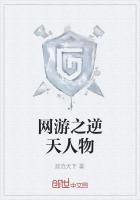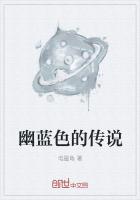but Phormio is a more dashing and amusing convivial parasite than the Gnatho of the last-named comedy. There were numerous rivals of whom we know next to nothing--except by the quotations of Athenaeus and Plutarch, and the Greek grammarians who cited them to support a dictum--in this as in the preceding periods of comedy in Athens, for Menander's plays are counted by many scores, and they were crowned by the prize only eight times. The favourite poet with critics, in Greece as in Rome, was Menander; and if some of his rivals here and there surpassed him in comic force, and out-stripped him in competition by an appositeness to the occasion that had previously in the same way deprived the genius of Aristophanes of its due reward in Clouds and Birds, his position as chief of the comic poets of his age was unchallenged. Plutarch very unnecessarily drags Aristophanes into a comparison with him, to the confusion of the older poet. Their aims, the matter they dealt in, and the times, were quite dissimilar. But it is no wonder that Plutarch, writing when Athenian beauty of style was the delight of his patrons, should rank Menander at the highest. In what degree of faithfulness Terence copied Menander, whether, as he states of the passage in the Adelphi taken from Diphilus, verbum de verbo in the lovelier scenes-- the description of the last words of the dying Andrian, and of her funeral, for instance--remains conjectural. For us Terence shares with his master the praise of an amenity that is like Elysian speech, equable and ever gracious; like the face of the Andrian's young sister:
'Adeo modesto, adeo venusto, ut nihil supra.'
The celebrated 'flens quam familiariter,' of which the closest rendering grounds hopelessly on harsh prose, to express the sorrowful confidingness of a young girl who has lost her sister and dearest friend, and has but her lover left to her; 'she turned and flung herself on his bosom, weeping as though at home there': this our instinct tells us must be Greek, though hardly finer in Greek.
Certain lines of Terence, compared with the original fragments, show that he embellished them; but his taste was too exquisite for him to do other than devote his genius to the honest translation of such pieces as the above. Menander, then; with him, through the affinity of sympathy, Terence; and Shakespeare and Moliere have this beautiful translucency of language: and the study of the comic poets might be recommended, if for that only.
A singular ill fate befell the writings of Menander. What we have of him in Terence was chosen probably to please the cultivated Romans; and is a romantic play with a comic intrigue, obtained in two instances, the Andria and the Eunuchus, by rolling a couple of his originals into one. The titles of certain of the lost plays indicate the comic illumining character; a Self-pitier, a Self-chastiser, an Ill-tempered man, a Superstitious, an Incredulous, etc., point to suggestive domestic themes.
Terence forwarded manuscript translations from Greece, that suffered shipwreck; he, who could have restored the treasure, died on the way home. The zealots of Byzantium completed the work of destruction.
So we have the four comedies of Terence, numbering six of Menander, with a few sketches of plots--one of them, the Thesaurus, introduces a miser, whom we should have liked to contrast with Harpagon--and a multitude of small fragments of a sententious cast, fitted for quotation. Enough remains to make his greatness felt.
Without undervaluing other writers of Comedy, I think it may be said that Menander and Moliere stand alone specially as comic poets of the feelings and the idea. In each of them there is a conception of the Comic that refines even to pain, as in the Menedemus of the Heautontimorumenus, and in the Misanthrope. Menander and Moliere have given the principal types to Comedy hitherto. The Micio and Demea of the Adelphi, with their opposing views of the proper management of youth, are still alive; the Sganarelles and Arnolphes of the Ecole des Maris and the Ecole des Femmes, are not all buried.
Tartuffe is the father of the hypocrites; Orgon of the dupes;Thraso, of the braggadocios; Alceste of the 'Manlys'; Davus and Syrus of the intriguing valets, the Scapins and Figaros. Ladies that soar in the realms of Rose-Pink, whose language wears the nodding plumes of intellectual conceit, are traceable to Philaminte and Belise of the Femmes Savantes: and the mordant witty women have the tongue of Celimene. The reason is, that these two poets idealized upon life: the foundation of their types is real and in the quick, but they painted with spiritual strength, which is the solid in Art.
The idealistic conceptions of Comedy gives breadth and opportunities of daring to Comic genius, and helps to solve the difficulties it creates. How, for example, shall an audience be assured that an evident and monstrous dupe is actually deceived without being an absolute fool? In Le Tartuffe the note of high Comedy strikes when Orgon on his return home hears of his idol's excellent appetite.
'Le pauvre homme!' he exclaims. He is told that the wife of his bosom has been unwell. 'Et Tartuffe?' he asks, impatient to hear him spoken of, his mind suffused with the thought of Tartuffe, crazy with tenderness, and again he croons, 'Le pauvre homme!' It is the mother's cry of pitying delight at a nurse's recital of the feats in young animal gluttony of her cherished infant. After this masterstroke of the Comic, you not only put faith in Orgon's roseate prepossession, you share it with him by comic sympathy, and can listen with no more than a tremble of the laughing muscles to the instance he gives of the sublime humanity of Tartuffe:
'Un rien presque suffit pour le scandaliser, Jusque-le, qu'il se vint l'autre jour accuser D'avoir pris une puce en faisant sa priere, Et de l'avoir tuee avec trop de colere.'















